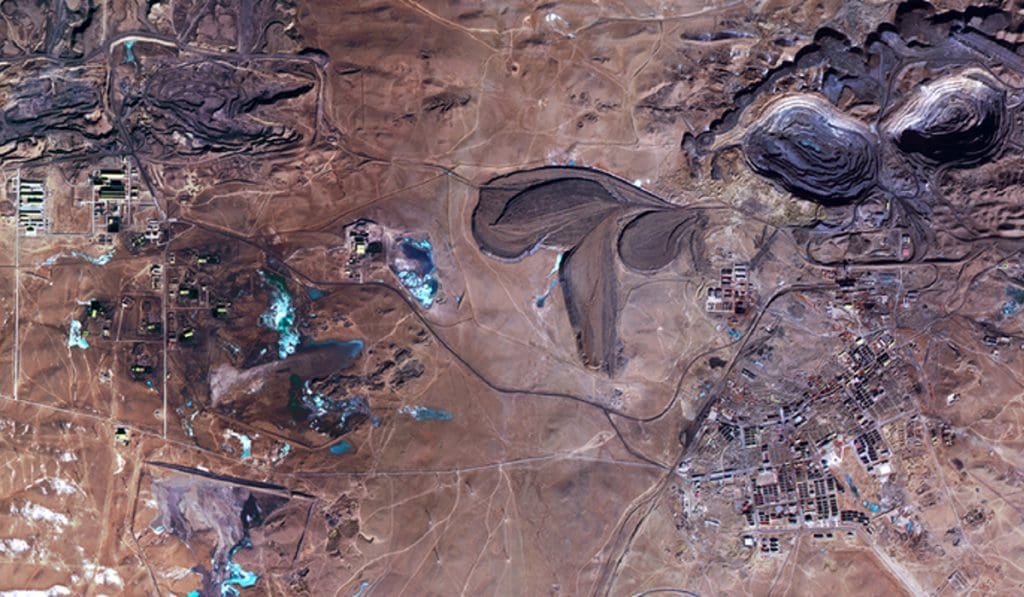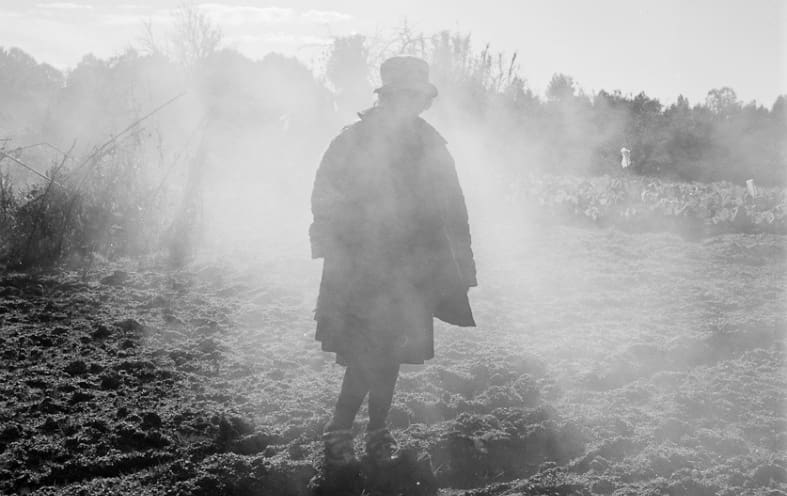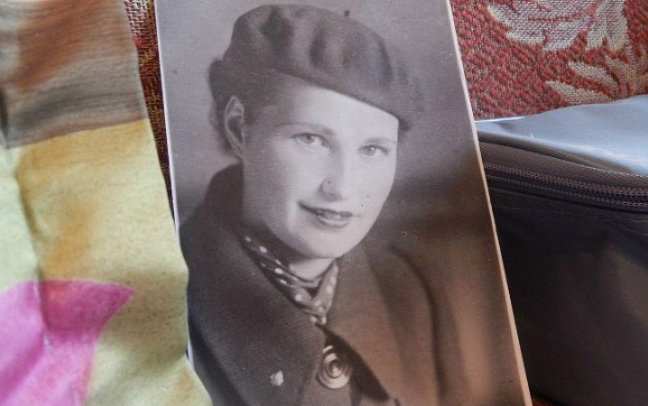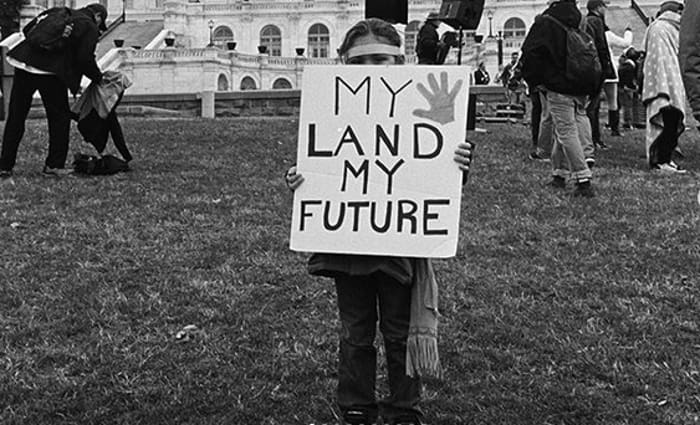Transcribed from the 18 May 2019 episode of This is Hell! Radio (Chicago) and printed with permission. Edited for space and readability. Listen to the whole interview:
We’re going to have to find a way to use less energy. Simply adding new renewable technology is not going to cut it.
Chuck Mertz: Sure, it would be great if the Green New Deal would solve all our problems and lead us into a world that is not the dystopian hellscape we’re likely to encounter in our inevitable future of societal collapse. But it won’t work if the Green New Deal itself actually contributes to climate change during its implementation.
Here to give us the bad news on what we hope can be a very, very good thing, author and poet Jasper Bernes, who wrote the Commune article “Between the Devil and the Green New Deal.”
Welcome to This is Hell!, Jasper.
Jasper Bernes: Hi, thanks for having me, Chuck.
CM: You describe how “from space, the Bayan Obo mine in China, where seventy percent of the world’s rare earth materials are extracted and refined, almost looks like a painting: the paisleys of the radioactive tailing ponds, miles long, concentrate the hidden colors of the Earth. Aquamarines and ochres of the sort a painter might employ to flatter the rulers of a dying empire.”
This is a frightening picture, and although they look different in their devastation, it reminded me of memes on social media a few years ago comparing sites of tar sands extraction [in Alberta, Canada] to scenes of Mordor from Lord of the Rings.
You continue: “To meet the demands of the Green New Deal, which proposes to convert the US economy to zero-emissions renewable power by 2030, there will be a lot more of these mines gouged into the crust of the Earth.”
What progress, if any, is being made in replacing our current energy sources with one that can create an equivalent amount of energy without contributing to climate change?
JB: That’s difficult to assess. Certainly the amount of renewable energy that’s been generated in the United States and other countries has increased. But so has the total amount of energy that’s being used. If you replace certain energy sources with renewables, but those other energy sources still continue to be used in greater amounts, then you really haven’t done much. So far that’s been largely the case with increases in renewable energy: it hasn’t offset anthropogenic gas-emitting energy sources, but perhaps allowed the uses of those sources to increase less quickly. That’s not going to stop catastrophic global warming. At best it might delay it a little bit.
CM: To fight climate change, do we all just need to quit consuming as much energy as we do? Is the only way to fight climate change to simply quit our energy consumption?
JB: More or less, yes. I’m not going to say that we can’t consume any energy whatsoever or that that’s a reasonable projection or plan. But there is no solution to the crisis of global warming that doesn’t involve a reduction in the amount of energy each person is using. That’s certainly the case in high energy-consumption areas like the United States, where people are using six or eight times as much energy as people in the poorest countries. Perhaps for people in the poorest countries, we could have a transition where they are using more energy. But for those of us in the United States, we’re going to have to find a way to use less energy. Simply adding in new renewable technology is not going to cut it.
There are all these fantasies about technological solutions to the problem, free clean energy, but those don’t really seem to be anywhere on the horizon. If we look at the IPCC report, the consensus of the world’s scientists, they don’t really give any credence to these kinds of technologies. They don’t think most of them are going to be available in the next few decades.
CM: Our economy depends upon, even demands, energy consumption and growth to work. How dependent is our economic system, then, on consuming as much energy as possible and constantly consuming more in the form of growth for continued success? How dependent is our economy on the causes of climate change?
JB: They’re directly correlated. More or less all economic growth has meant growth in per capita energy consumption. That’s been consistent across the entire history of capitalism. And capitalism didn’t really become a dynamic, self-generating system of constant growth until capitalists found fossil fuel energy sources—chiefly coal. It was coal that enabled capitalism to become this machine: the automaton of constant growth.
It’s unclear that we could have capitalism without constant growth, and it’s also unclear that we can have constant growth without fossil fuels.
CM: Do we have to end globalization to fight climate change? You write, “The renewable energy supply chain is a complicated hopscotch around the periodic table and around the world. To make a high-capacity solar panel, one might need copper form Chile, indium from Australia, gallium from China, and selenium from Germany.”
So do we have to end globalization in order to fight climate change? And can we fight climate change—if we were fighting climate change, would that have to be globalized?
JB: It depends on what you mean by globalization. When people use that term, they’re referring to a transformation of capitalism that occurred over the past thirty years. And it was not about bringing everybody closer together or linking the fates of nations for peace and harmony. Really it’s about allowing multinational corporations to go all over the world and find the cheapest labor possible. The reason that so much stuff that we consume in the US is made in China is not because it’s more efficient to do it there, but because it’s cheaper, and you can make more profit. If we could remove the profit imperative, it really wouldn’t make sense to do things the way that we’re doing them. If you paid everybody the same, it would be too expensive to make it in China, and it would be wasteful to ship things halfway across the world. Outside of capitalism and the logic of capitalists, it doesn’t make a lot of sense to do these things that way.
Our awareness is limited, because we live in societies that are enormously complex, and that are designed to occlude the sources of violence. There’s not a lot done to make the world visible to us.
When you think about trying to conserve energy and emit fewer greenhouse gases, it really doesn’t make sense to ship things all over the world. Of course there are some things which are scarce resources that you can’t get where you live. But that’s not what globalization is about anyway. If we want to reorganize our autonomy and the way that we live in a way that makes sense, we’re going to have to break the links of these global markets, and we’re going to have to find ways to feed ourselves and make shelter and produce the things we need using less energy. That means localizing a lot of production.
At the same time, that kind of process, to be successful, needs to be a global process. We can still build connections between people living thousands of miles away, and there can be another kind of globalization that’s about assistance and solidarity, communication, and so on.
To answer your second question, I don’t think that we can just wall ourselves off from the world economy and that will fix the problem. That’s absurd. We could also be incredibly wasteful as an autarkic economy that’s turned away from the world. That’s not really a solution either—and I don’t really think any countries are capable of doing that.
CM: You mention Émile Zola’s writing in the nineteenth century in Germinal, which was a critique of fossil fuel extractivism, a critique of coal mining. To what extent was there public debate and discussion about mass fossil fuel consumption from the very beginning? Did anyone predict inevitable environmental destruction?
We often get the sense that they were innocents who didn’t know better, who were only trying to do the right thing for their children, for the next generation, for a more wealthy, healthy, and less harsh world of automation and leisure. But was there debate over fossil fuels from the beginning?
JB: I’m not sure that I know enough about the history of coal use in the nineteenth century to really accurately answer that question. But I do know that coal made people’s lives miserable from the beginning, both by polluting cities and occasionally filling them with so much smoke that people were getting sick. And of course the coal mines themselves were miserable places. People reacted to both of those sets of conditions.
There were all kinds of worries in the nineteenth century about the scarcity of various resources, and the unsustainability of capitalism. William Stanley Jevons, a nineteenth century economist, notes that energy use increases with economic growth, and worries about what will happen when coal runs out. But beyond that I’m not sure I know enough to answer the question.
CM: You write, “Monsters are products of the Earth in classical mythology, children of Gaia, born from the caves and hunted down by a cruel race of civilizing sky-gods. But in capitalism, what is monstrous is Earth as animated by those civilizing energies. In exchange for these terrestrial treasures used to power trains and ships and factories, a whole class of people is thrown into the pits.”
How much do you think the public understands, recognizes, realizes that exchange and accepts it? Has there always been the same kind of unwritten agreement, in a way?
JB: It depends on where you live. If you live in West Virginia, you probably have a good sense of what it means to work in a coal mine. Coal miners are compensated much better now than they were, and the conditions are better in some ways, but it’s still dangerous work. And still, fewer and fewer people are working in these sectors because of automation, and because there’s been an outsourcing of mineral extraction work. A lot of people don’t have any sense of what it means to work in a mine, historically or at present, but if you live in a mining community, of course you do. At the same time, a lot of mines and mining areas have been closed down, and coal is no longer being used at the same rate in the United States.
CM: You write, “Energy is never clean. The infrastructure of the modern world is cast from molten grief.” Do we actively delude ourselves into believing that our actions do not have a negative impact on the world? And to you, what does it say about a society to be in such active denial?
JB: I don’t think we can evaluate any action and conclude whether it is negative or positive. Relative to what? We don’t know in advance the meaning or effect of our actions in full. That’s what makes politics politics. People do things and don’t know whether the effects will be the ones they intend. In fact, usually they’re not the effects that they intend.
I’m not blaming people for being involved in this system that is violent at every level and every place. You have no choice. I drive a car, because my life requires that I do so. It’s not a really a moral perspective. But our awareness is limited, because we live in societies that are enormously complex, and that are designed to occlude the sources of violence. There’s not a lot done to make the world visible to us, because the way that the economy is organized is predicated on you just doing your job in this one place. There’s no attempt to make where you are within the system visible.
I think a society that is truly free and truly equal—this would be a really important part of it: it would be transparent, so you would understand what you are doing and the effects of what you’re doing, and you’re connected to people, and you see yourself as connected to a whole social process. But there’s no emphasis on that at all.
Our society is incredibly technical and complex, so it’s difficult to understand what’s happening. I take great interest in trying to learn about how thing work—that’s the thing that I really enjoy in writing these pieces, digging into the technical characteristics of, say, the energy system. I find it really fascinating to understand how these processes function. I don’t have a background in science or engineering or mathematics, but I think it’s important to try to understand how these things work and whether certain adaptations or reconfigurations are possible.
Capitalism will adapt as climate change increases, but it will adapt not by mitigating the situation, improving everyone’s lives, and keeping everyone alive but by building walls and fortresses for the rich.
CM: There is so much writing nowadays where people are saying, “We’re trying to start a conversation.” The Green New Deal “started a conversation.” Do you feel like you are part of that conversation, or are you more dismissive of the Green New Deal in its entirety?
JB: I’m definitely part of the conversation, and I hope that my article doesn’t come off as dismissive. A lot of people who are invested in the Green New Deal are sincere, intelligent people, and in many cases they want the same kinds of things that I do. That’s important to recognize. In this world there are enemies, but the people I’m engaging with are not my enemy, and I’m certainly not dismissing their actions.
But right now the Green New Deal is a policy proposal and a discussion, so I think it’s fair game to talk about whether it will work or not. My reaction would be very different if we had a massive social movement in the United States calling for something like a Green New Deal. But that’s not what this is. This is a project that originated within the nonprofit world as it intersects with elected politicians, and is being promoted by whole networks of publishing initiatives and podcasts, and so on. It’s an idea. Ideas are fair game. It’s worth asking if they’re the right ideas.
The hopeful take is that it’s about changing hearts and minds and getting people to have some hope that these problems are changeable. I understand that. That work is important. But I worry about the effects of hitching that conversation to a policy initiative like this, and particularly a set of electoral campaigns. I worry this will make it harder to do the kinds of things we need to do in order to save our own lives and the lives of the people who are to come.
CM: We recently spoke to sustainability scholar Jem Bendell, who no longer believes sustainability should be pursued, seeing the field as a failure. Instead, Jem says it’s time to figure out how we’ll adapt to climate change. Can capitalism adapt to climate change? Can we make a Green New Capitalism that would create a Green New Deal?
JB: Capitalism may adapt to climate change—but I think the chance of capitalism surviving the twenty-first century is pretty low. What seems more likely to me is that something will replace capitalism that is not an emancipatory social form: we’ll have some other kind of class society organized through other principles. It may be even uglier than what we have already.
Capitalism will adapt as climate change increases, but it will adapt not by mitigating the situation, improving everyone’s lives, and keeping everyone alive but by building walls and fortresses for the rich, engaging in risky geo-engineering, and things like that.
I’m worried about climate change killing off most of our companion species on the planet, and potentially endangering the lives of millions, maybe billions of people and completely changing the planet. But I’m equally as worried about a geo-engineering response. Most people on this planet have no control over what is done in their name, and it’s not hard for governments to decide they’re going to geo-engineer, send a bunch of rockets into the sky filled with sulfur, and start trying to control the temperature on the planet that way. Who knows what the consequences will be?
There are a lot of dangers beyond just climate change. The political consequences are going to be quite severe unless we can come up with revolutionary movements to counter these sorts of ruling class projects.
CM: You write, “The ‘New’ of the Green New Deal must express itself in language decidedly old, appealing to great-grandpa’s vanished workerism and the graphic style of WPA posters.” Is the problem with the Green New Deal not the “Green” part but the “New Deal” part? If we want the Green New Deal or something like its goals to succeed, do we need to take the “New Deal” out of the Green New Deal?
JB: There are criticisms of the “New Deal” part of the Green New Deal, and a lot of people respond with, “Well, I didn’t choose the language, I’m just working with what we have.” But I do think it’s dangerous to draw upon these historical examples without really understanding the context, and to misappropriate them. The important thing is that the New Deal wasn’t the demand of the era. The workers who were organizing in the 1930s were not calling for a New Deal. The New Deal was a government response to the things that they were calling for. It’s important to note this back-and-forth between people struggling within mass movements and the government response to it.
One of the problems with the Green New Deal as a demand is that it collapses that distance between movement and the state. I’m really worried about the consequences of collapsing that distance. So I would say yes, in that sense, turning the New Deal into a slogan or a demand is misguided. It would be better if we had a movement with demands that said “decarbonize now” or something like that, and put pressure on the state to do that while attempting to decarbonize in its own way, by blocking pipelines and engaging in direct action. That’s a more promising political vision for our time.
CM: Jasper, I really appreciate you being on the show.
JB: Thanks for having me, Chuck.
Featured image source: Commune





